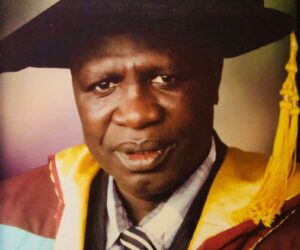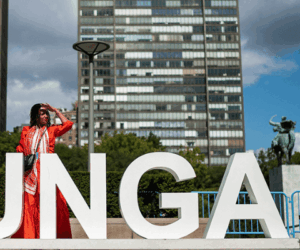
If the university must heal and reclaim its dignity, it must confront the truth of what happened. It must accept that the process was hijacked. It must acknowledge that loyalty was punished and bloodlines elevated. It must admit that the Abuja hijack violated everything the University Act stands for. And above all, it must return to the path of law, for only then can UNIZIK rise again as the great institution it once was.
Nnamdi Azikiwe University, Awka — an institution once celebrated for fairness, scholarship and institutional honour — has found itself engulfed in one of the most unsettling leadership crises in the history of Nigerian tertiary education. What should have been a straightforward process of appointing a new Vice-Chancellor gradually deteriorated into a spectacle marked by political interference, legal violations and profound betrayal. The turmoil surrounding the emergence of Professor Bond Anyaehie has left stakeholders shocked, wounded and questioning how a university that once stood as a beacon of learning could be dragged into such disrepute. What happened at UNIZIK was not a mere procedural flaw; it was a hijack — audacious, calculated and executed with a brazenness that undermined both the university and the laws that govern it.
To understand the weight of this crisis, one must appreciate the position of those who followed the process with hope, especially the supporters of Professor Joseph Ikechebelu. Appointed temporarily by the National Universities Commission (NUC) in June 2024, at a time when the university lacked a Governing Council, Ikechebelu was handed a difficult assignment. The institution stood on the brink of administrative imbalance, and his appointment was intended to safeguard it from slipping into a vacuum. He accepted the responsibility with full commitment, stabilising the institution, restoring order and preparing the ground for what many believed would be a transparent leadership transition. His appointment was never meant to be permanent, but the sacrifice, energy and goodwill he invested made him one of the most respected figures in the race. His confidence in the process came not from entitlement but from service. He believed in the system because he believed in the institution.
By July 2024, when the new Governing Council under Ambassador Greg Mbadiwe was inaugurated and the NUC stepped aside, the Council appointed Professor Carol Arinze-Umobi as acting vice-chancellor. Even then, many within UNIZIK understood that Ikechebelu remained a formidable contender. He had deep institutional memory, administrative competence, and the trust of large sections of the workforce. Yet, beneath these open transitions, a darker undercurrent was building — one that would eventually expose how little the rule of law would matter.
A lawsuit filed by Professor Anthony Okoye had produced a consent judgment on 16 October 2024 from the National Industrial Court in Awka. This judgment provided the lawful framework for selecting a substantive vice-chancellor. In accordance with this judgment, the university advertised the vacancy, shortlisted candidates and conducted interviews. For a moment, hope flickered. It seemed due process would prevail. But that hope evaporated as political actors emerged unexpectedly and exerted pressure that overshadowed merit and fairness. The selection process quickly became a battlefield for power blocs, and those who had carried the institution through its turbulence found themselves confronting forces no law could restrain.
Then came the ambush. On 19 November 2024, the Tinubu administration abruptly dissolved the Governing Council — mid-process and without explanation. This action violated every principle embedded in the University Act and sent shockwaves across the academic community. Days later, on 24 November, the Minister of Education reappointed Ikechebelu as acting vice-chancellor, an act that was subsequently declared illegal because only the Governing Council — not the Ministry — has the authority to make such an appointment. UNIZIK was no longer being guided by law; it had become a chessboard for political manoeuvring.
Even amidst this chaos, many still hoped that once the confusion settled, the university would return to the lawful path. But this hope was short-lived. Despite a standing court judgment, and despite the Industrial Court dismissing appeals in both Awka and Abuja, the university — under heavy external influence — proceeded to initiate an entirely new selection process. This action amounted to outright contempt of court, so much so that the National Industrial Court issued Form 86 and Form 87, reminding the institution that the penalty for disobedience could include imprisonment. Yet, these warnings were brushed aside. Politics had fully taken control, and due process was shoved aside.
UNIZIK stands today on a dangerous precipice. On one side lies the rule of law, institutional dignity and fairness. On the other lies chaos, diminished credibility and a future where leadership is auctioned to the highest political bidder. The truth remains constant: appointments born of illegality do not endure. Institutions built on contempt eventually collapse under the contradictions they create. Whatever now lies ahead will be determined not by political celebrants but by the law, which — however slow — always returns to demand accountability.
It was in the midst of unresolved litigation, active contempt and blatant disregard for law that the university announced Professor Bond Anyaehie — a man widely known to be closely related to a powerful political figure in Imo State — as the new vice-chancellor. For many within the academic community, this was the final confirmation that the process had been manipulated to favour a predetermined candidate.
Perhaps the most disturbing part of the entire saga is the unprecedented manner in which the process was concluded. For the first time in the history of Nigerian universities, the decisive stage of selecting a Vice-Chancellor was removed from the campus and hijacked to Abuja. This was not only irregular — it was unlawful. The Universities (Miscellaneous Provisions) Act clearly stipulates that once the Joint Council–Senate Selection Board recommends three candidates, the full Governing Council must meet on campus, deliberate and vote. The candidate with the highest votes becomes the vicecChancellor. This procedure ensures autonomy, protects university integrity and prevents political interference. Yet, at UNIZIK, the final vote never took place. There was no Council meeting, no ballot, no record of voting and no lawful ratification. Instead, the outcome was engineered in Abuja, violating the very foundation upon which university governance rests.
For the supporters of Ikechebelu, the pain is deep — not because he was entitled to victory but because the process was never allowed to be fair. He had given so much to stabilise the university in its moment of vulnerability. He trusted the system. And the system failed him. His loss is not merely personal; it symbolises the erosion of fairness in a place where fairness is supposed to be sacred.
Now, UNIZIK faces a question that goes beyond legality and touches on morality: how did a university named after Nnamdi Azikiwe — an icon of justice, democratic values and institutional integrity — fall into the hands of those who treat court orders as optional and legality as negotiable? How did merit become so cheap and political lineage become so powerful that the leadership of a great institution could be decided by proximity to government houses rather than competence?
UNIZIK stands today on a dangerous precipice. On one side lies the rule of law, institutional dignity and fairness. On the other lies chaos, diminished credibility and a future where leadership is auctioned to the highest political bidder. The truth remains constant: appointments born of illegality do not endure. Institutions built on contempt eventually collapse under the contradictions they create. Whatever now lies ahead will be determined not by political celebrants but by the law, which — however slow — always returns to demand accountability.
If the university must heal and reclaim its dignity, it must confront the truth of what happened. It must accept that the process was hijacked. It must acknowledge that loyalty was punished and bloodlines elevated. It must admit that the Abuja hijack violated everything the University Act stands for. And above all, it must return to the path of law, for only then can UNIZIK rise again as the great institution it once was.
Chinedu Okonkwo, an ex-staff of UNIZIK, wrote from Anambra State.












